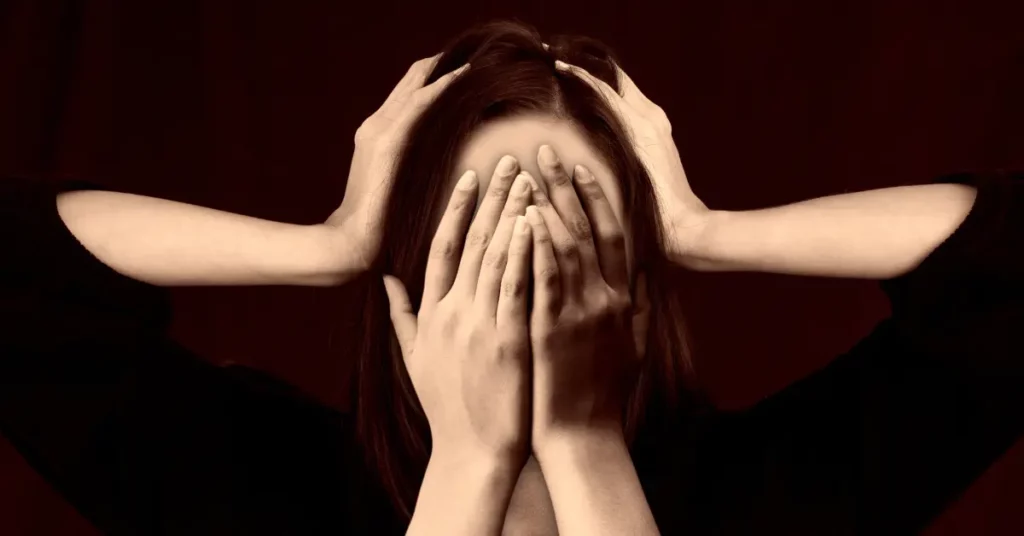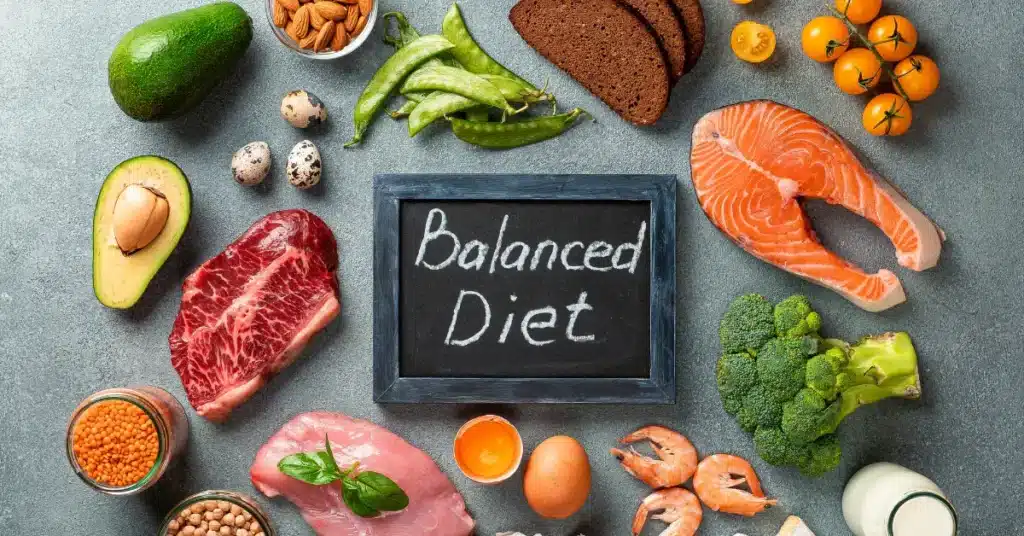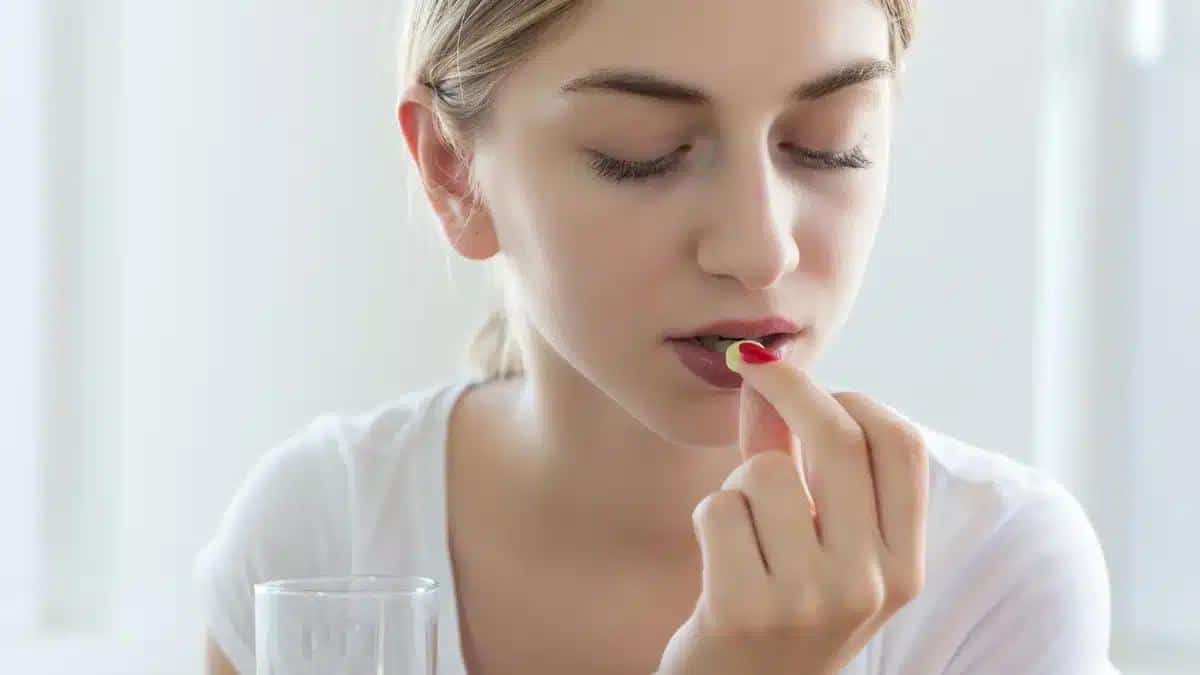Low libido in women defines the lack of sexual desire.
Although it is a common condition affecting women, it can hinder relationships and cause distress and frustration.
The causes of low sex drive in women vary among individuals and are mostly influenced by physical and psychological factors.
Sometimes crucial lifestyle changes such as pregnancy and menopause can also lead to low libido in women.
However, low libido is not always a matter of concern unless it affects your physical and mental well-being and relationship.
Several ways can be employed to overcome low libido in women, such as lifestyle modifications and medications.
This article will answer the most common question among many women — what causes low libido in women and possible ways to treat the condition.
Symptoms of low libido in women

The symptoms of low libido in women may vary from one person to another.
Some of the most commonly diagnosed symptoms of low libido in women are:
- Having no desire to engage in any kind of sexual activity, including masturbating
- Being anxious about your occasional or absent sexual ideas or thoughts
- Lack of sexual activity
- Decreased sexual arousal
- Emotional disconnect with partner
- Stress, fatigue, and lack of energy
- Feeling of self-consciousness about own body image
If you experience any of these symptoms frequently, it is advisable to seek the advise of a healthcare expert.
Causes of low libido in women
Many changes in your life may impact your interest in sex.
The complex combination of several factors determine your libido or urge for sexual activity.
These include your physical and emotional well-being, experiences, beliefs, lifestyle, and present relationship, generates your desire for sex.
Your libido may be impacted if any of these areas of your life are adversely affected.
Numerous physical and psychological variables can influence your attitudes toward sexual activity, leading to low libido.
These causes of low sexual libido in women include health issues, certain medicines, hormonal changes, alcohol and drug abuse, stress, Anxiety, and relationship problems.
Physical causes
Certain health conditions, medicines, substance abuse, and hormonal changes comprise physical causes of women’s low libido.
Several medical conditions, such as Arthritis, Cancer, Diabetes, Hypertension, coronary artery disease, and neurological disorders, might impact sex desire.
Some prescribed medicines, especially Selective Serotonin Reuptake Inhibitors (SSRIs), are known to reduce sexual desire leading to low libido.
Breast or genital surgery can also affect your libido and sexual function.
Hormonal causes of low libido in females include menopause and pregnancy.
During the menopausal transition, estrogen levels decrease.
This may decrease your desire for sex and produce dry vaginal tissues, making intercourse painful or uncomfortable.
Recommended read: Understanding and Addressing Low Libido in Men
Additionally, hormonal changes during pregnancy, immediately following childbirth, and while breastfeeding a newborn might reduce sex desire.
Some women suffer from low libido during this hormonal transition, still enjoy fulfilling sex after menopause and beyond.
Also, excessive intake of alcohol, smoking, and drug abuse can also hinder your ability to have sex, causing low libido.
Psychological causes
Psychological factors can affect a woman’s libido to a greater extent.
A woman’s sexual desire may be influenced by her emotional stability, mental health, and interpersonal connections.
Several psychological factors can lead to low libido in women, including:
- Stress, depression, and Anxiety
- Poor body image
- Low self-esteem
- Abuse history, either physical or sexual
- Prior inappropriate sexual encounters
Treatment for low libido in women
The treatment of low libido in women depends upon the underlying cause.
These include communication, stress management, hormone therapy, medications, psychotherapy, lifestyle changes, and herbal supplements.
Communication: You may be able to get over your concerns about sexual function by learning more about sex, sexual behaviors, and sexual reactions.
Many issues hindering your sex life may be resolved by conversing directly and honestly with your partner about your wants and worries.
Stress management: Utilizing strategies to enhance how you react to challenges in your life is known as stress management.
These stress management methods like exercise, meditation, yoga, and other types of self-care can relieve stress. Further, it can work in helping women with low libido.
Hormone therapy: Estrogen treatment and Estrogen-Progesterone/Progestin Hormone Therapy (EPT) are the two primary kinds of hormone therapy that increase hormone levels while easing some menopausal symptoms, such as reduced libido.
Medications: Your doctor will analyze the medicines you are currently taking to see whether ones have the propensity to have sexual adverse effects.
For instance, Fluoxetine (Prozac, Sarafem) and Paroxetine (Paxil), two antidepressants, may decrease sex desire in women.
For women with sexual interest/arousal issues, switching to Bupropion (Wellbutrin SR, Wellbutrin XL), a different kind of antidepressant, typically increases sex desire.
The Food and Drug Administration (FDA) has authorized medications such as Flibanserin and Bremelanotide for premenopausal women.
Psychotherapy: It involves a range of therapeutic approaches intended to assist a patient in recognizing and altering unhealthy feelings, beliefs, and behaviors.
In a therapy session with a mental health expert, you can address any physical or mental health issues or events causing a decline in your libido.
Lifestyle changes: Avoiding alcohol intake and drug abuse, quitting smoking, exercising daily, and having a healthy diet can all help boost libido in both men and women.
Dark chocolate, fatty fish, pumpkin seeds, avocados, pomegranates, watermelon, and beef are some food items that act as libido boosters.
Herbal supplements: Certain herbal supplements are known to increase libido in women.
These include Yohimbine, Gingko Biloba, Ginseng, and Tribulus Terrestris.
Zestra is a herbal massage oil that, when applied on the clitoris, labia, and vagina, increases sexual arousal and libido.
According to research, Sildenafil may assist post-menopausal women to boost their libido.
Thus, doctors may advise off-label use of Viagra (Sildenafil) for female Sexual Dysfunction.
Sildenafil is prescribed by doctors “off-label” because the FDA has not approved it to treat low libido in females.
Conclusion
 Source: FatCamera_from_Getty_Images
Source: FatCamera_from_Getty_Images What causes low libido in women is a common question among many women.
Low libido is a common Sexual Dysfunction affecting women at some point in their lives.
Reduced frequency of sex drive and lack of sexual desire are two main symptoms of low libido in women.
Several physical and psychological factors lead to low libido in women.
These include stress, Anxiety, hormonal changes, some underlying health issues, certain medicines, alcohol and drug abuse, and relationship problems.
However, various approaches can be employed to boost libido in women.
Communication, medications, psychotherapy, stress management, hormone therapy, lifestyle changes, and herbal supplements are some effective ways to treat low libido in women.
It is advisable to consult a doctor before opting for any of these treatment methods.
Frequently Asked Questions
Why is my female libido so low?
Underlying health conditions such as Diabetes, hormonal imbalances, stress, Anxiety, etc. can cause low libido in females. Also, alcohol and drug abuse, certain medicines, and relationship issues can cause low libido in women.
What vitamin deficiency causes low libido?
Vitamin D deficiency may inhibit the synthesis of hormones estrogen and testosterone, leading to low libido.
What pills cause low libido?
Some high blood pressure medicines, such as diuretics, SSRI antidepressants, and anti-seizures, are known to cause low libido.
How can a woman boost her libido?
Communication with a partner, stress management, hormone therapy, medications, psychotherapy, lifestyle changes, and herbal supplements can aid in boosting libido in women.
Which hormones are known to influence women’s libido?
Estrogen and testosterone hormones are known to affect women’s sexual desire and libido.
When referencing outside resources, GoodrxMedicine always provides full citations. To learn more about the measures we use to maintain the quality of our content, please review our Content Information Policy.











